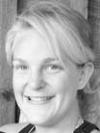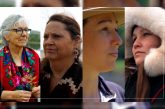
“It is symbolic that it is a birth centre that has been selected to pioneer the integration of programming from an Indigenous framework. It gives hope to the future generations that there is the ability to change, transformation is possible.”
Since the first Toronto Idle No More round dance stopped traffic at Yonge and Dundas back in December I have been full of thought and self-reflection. On that day, as I self-consciously held hands and danced to the drum beat of a culture that was not my own, I was filled with hope, doubt, inspiration, pride, shame, excitement, and curiosity. Where was this movement leading us and how would the mainstream Canadian population choose to engage in it? Would the non-Indigenous people of Canada understand that it is they who have been idle and that the power of this movement will only be fully expressed if they cast off their apathy and agree to evaluate their values, worldviews, and way of life? Could this movement encourage us to see that there is a different way to relate to each other and the world around us? And the questions that circled through my head most often: what is my role and what are my responsibilities as a self-described ally to the Indigenous people of Canada?
I have been referring to myself as an ally for years – through family relationships with my sister, brother, and nephew who have Anishinaabe ancestry; through my work as a midwife at Seventh Generation Midwives Toronto, an Indigenous-focused midwifery group; and through personal involvement and volunteer work in prenatal and postpartum groups within the Indigenous community in Toronto. I have worked with, shared with, and learned from this diverse group of people, however, it is only recently that I have begun to reflect upon and engage in trying to define what that word means to me. My attempt to characterize the term ally is a conscious action and I am looking at, questioning, and speaking out about my place in Canadian society, acknowledging my privilege as a white person in a prejudiced country, and taking ownership over how I engage in relation to societal imbalances.

Idle No More became a round-dance-revolution that saw flash-mob round dances arise across Canada and globally to bring awareness to the complex issues facing Indigenous Peoples in Canada. Alongside the round dances Indigenous led “teach-ins” were born. It was time to learn what had not been taught in the conventional Canadian education system: What were the initial impacts and the on-going legacy of colonization? What agreements were made in the treaties that were signed by the Crown and the Indigenous leaders at the time of contact and how have these treaties been broken time and time again to the benefit of the Canadian government to the detriment of the Indigenous people? How does Indigenous worldview differ from that of mainstream Canada and how has that impacted our connection to the land and to each other? As settlers on stolen land, how can non-Indigenous people support the Idle No More movement and respond to hundreds of years of inequitable treatment of the First Peoples of this land?
In Toronto, the teach-ins are hosted by a group of women under the title of Idle No More Toronto and take place every Tuesday evening at Council Fire Native Cultural Centre. After attending my first teach-in it became apparent to me that one of my responsibilities as an ally was to educate myself and so I committed to being present every Tuesday. At these teach-ins we sit in a circle and take the time to go around and introduce ourselves – where we are from and why we are here. There is also often a drum group that is present to open and close the evening. Through these simple acts I learned that there are protocols to follow – there are ways that things are done to give respect where it is due, to create time and space for ritual, ceremony, and sharing, and to build healthy and respectful relationships. Through these teach-ins and other Idle No More events geared toward teaching Indigenous history and worldview I have started to be able to put words to my identity as an Indigenous ally.
For me, being an ally is about being accountable to the First Peoples of this land. This can take shape in a multitude of ways; on an individual level it means being open to seeing the historical and current power imbalances within Canadian society and taking responsibility for learning about and understanding the reasons that they exist. This important learning is not a passive absorption of knowledge – it requires making the deliberate decision to seek out information through books, documentaries, teach-ins, workshops, and perhaps most importantly through direct dialogue with other people who have been engaged in this learning process and with Indigenous people who have offered to share their personal experiences and knowledge. It takes time, effort, dedication, and the willingness to put yourself and your wants second to those about whom you are learning. Regardless of how much I seek to understand I will never know the lived experience of being an Indigenous person in a racist country and therefore I seek to recognize and challenge the oppressive status quo while quietly and respectfully taking in all that I can from those people open to sharing.
Choosing to take the path of accountability requires looking at the world with a critical eye – questioning the status quo, encouraging those around me to do the same, and honouring a commitment to self-education that demands dedicating time to the process of deconstructing a worldview that has been largely shaped by immersion in Eurocentric education and Western culture. I believe that we must work together to demand accountability from all levels of government – federal, provincial, and municipal. This means insisting that the Prime Minister meet with Indigenous Chiefs on a Nation-to-Nation basis as laid out in The Royal Proclamation of 1763; it means understanding that consultation with Indigenous leaders is a duty and legal obligation according to Canadian laws and the constitution; it means acknowledging that Indigenous people have authority over determining how their Nations and communities are governed. An accountable Canada recognizes the value of Indigenous knowledge and worldview, that puts emphasis on respecting people and the natural world, and looks to the Indigenous people for guidance within all aspects of society.

As a result of time spent working as a midwife at an Indigenous-led midwifery practice and participating in the birth of my nephew I have repeatedly witnessed the transformative and healing power of pregnancy, labour, and birth when it is guided and nurtured in a respectful and culturally integrated way. Inspired by the transformational power of birth and a movement towards the reclamation of traditional birth knowledge, that has over many generations been silenced by colonization, Seventh Generation Midwives Toronto recently submitted a proposal to establish an Indigenous-led birth centre open to all women and families in Toronto. It is envisioned as a space where women, families, and communities from all over Toronto can access care that is both medically and culturally safe. Following an historic 3-day community consultation that asked Indigenous families what they would want to see in a culturally integrated birth centre, Toronto Aboriginal midwives called on non-Indigenous midwives to support their proposal and an agreement was made to put their energies together to submit a single application for an Indigenous grounded birth centre in the city of Toronto. The application, philosophy of care, and design of the physical space has been led by Aboriginal midwives and guided by an Indigenous framework that focuses on an holistic approach to health care – including emphasis on the physical, mental, emotional, and spiritual aspects of birth. It was recently announced that the application was successful and the birth centre is projected to open in Toronto in the fall of 2013.
I see a strong connection between the round dance revolution of the Idle No More movement and the birth centre proposal from Seventh Generation Midwives Toronto. Both are calling on Indigenous people to reclaim and share their knowledge with each other and with non-Indigenous communities in an effort to nurture a shift in consciousness that includes Indigenous worldview and approaches based on guardianship and meaningful relationships between diverse communities and with the natural world. The Idle No More movement is part of that shift which is already taking place in Indigenous communities who are inviting non-Indigenous communities to ally themselves and participate; it extends well beyond the field of midwifery and prenatal care and can be applicable within all sectors of society.
The unified and allied application for this birth centre, grounded in Indigenous leadership and approaches, is evidence that non-Indigenous people are beginning to recognize the enormous contributions that Indigenous people have to offer and proof that we have the power to shape our future – if we accept the invitation for change. It is symbolic that it is a birth centre that has been selected to pioneer the integration of programming from an Indigenous framework. It gives hope to the future generations that there is the ability to change, transformation is possible – we can, and must, birth ourselves into a new way of interacting with and relating to the world in a healthy, inclusive, and culturally respectful way.









